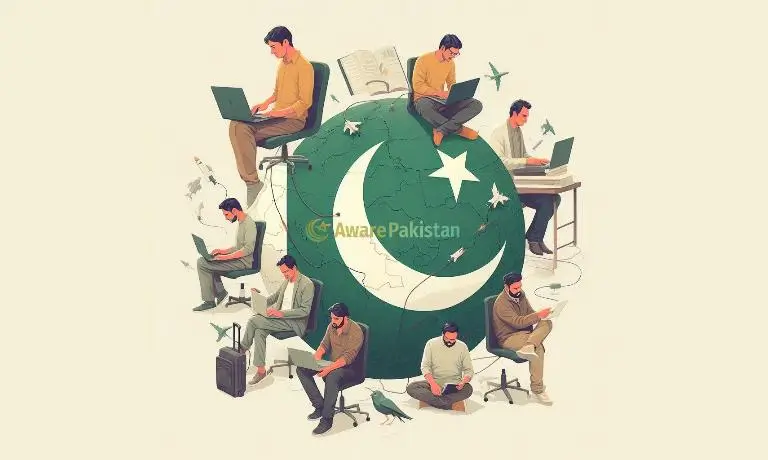The country’s traditional mode of economic life has been experiencing a dynamic revolution fueled by freelancing in the digital age. Not only is this exploding sector changing how people do their work, but it is also reshaping the very fabric of the economy through powerful, measurable data that unveils its transformative power.
The huge number of freelance workers in Pakistan shows how important they are to the country’s economy. Currently, this online workforce is made up of more than 1.5 million people and contributes $1 billion to the country’s GDP annually. However, this could increase to $60 billion or 10% of GDP, by 2030 It is not just about potential; between $400 and $450 million were channeled into the country’s economy through foreign currency earnings only in 2022, which helped to stabilize exchange rates and serve as an antidote against trade deficits, thereby creating a buffer for our ailing economy.
In addition to the figures, freelancing provides freedom for individuals, especially females and the younger generation, who easily get rejected in the traditional job market. With its inherent flexibility and remote work opportunities, freelancing has already created over 100,000 jobs in Pakistan, a figure poised to climb alongside digital literacy and platform access. This productive job creation, however, isn’t limited to temporary gigs; freelancing facilitates entrepreneurship, wherein many become micro-enterprises that prop up GDP growth.
Freelancing does not only have an impact on immediate earnings; it also drives individuals skilled in multiple soft skills, such as writing, programming or coding, designing, and so on, to have a platform where they can make a lucrative career. In other words, freelancing is a way of creating an alternative and part-time career pathway to guarantee financial well-being in one’s life without compromising on your studies and other life engagements. Therefore, working freelance promises a convenient and profitable working scheme, making you a profitable and valuable resident of Pakistan.
Creating your freelance career demands a few things to focus on, including learning a core in-demand skill such as designing, writing, marketing, and many others. You are a single Google search away from exploring myriads of options to master within a few months and becoming able to sell them on different freelance marketplaces. With mastery in a skill or multiple skills, there are multiple freelance platforms that allow you to create your gigs or online shops to cash out your talent. Some of the best and most credible freelance marketplaces are Upwork, Freelancer.com, Fiverr, etc.
This straightforward and effortless process will enable you to earn instant income part-time as well as help you make a full-time career, bidding farewell to the conventional 9-5 job market. However, it is important to stay productive and persistent in your freelance career. Therefore, learning essential soft skills apart from your core skills is mandatory for a long-term career. These skills, including project management, time management, the art of selling, financial literacy, etc., will help you stay on track for success in your career.
In this pursuit, educational institutions are tailoring courses to equip young Pakistanis with these in-demand skills, upskilling the workforce not just for freelancing but for all sectors of the economy. It is the need of the hour to focus on developing youth for the competitive freelance marketplace before it’s too late, as it will not only help them spur Pakistan’s competitiveness in a globalized digital world but also stay motivated and inclined towards living healthy and content lives.
The quantifiable data paints a clear picture: trends are not the main thing about freelancing; they are a force for transformation that generates income, creates jobs, trains people at work, and encourages entrepreneurship. By addressing the infrastructural gaps and developing constructive policies that will make access to the Internet more equitable, Pakistan can use this digital treasure trove for individuals and thus reach heights of equality while keeping up with development. The opportunities are vast, and the data speaks for itself: The freelance nation reshapes the economic terrain of Pakistan pixel by pixel.

MashaAllah. Keep it uo